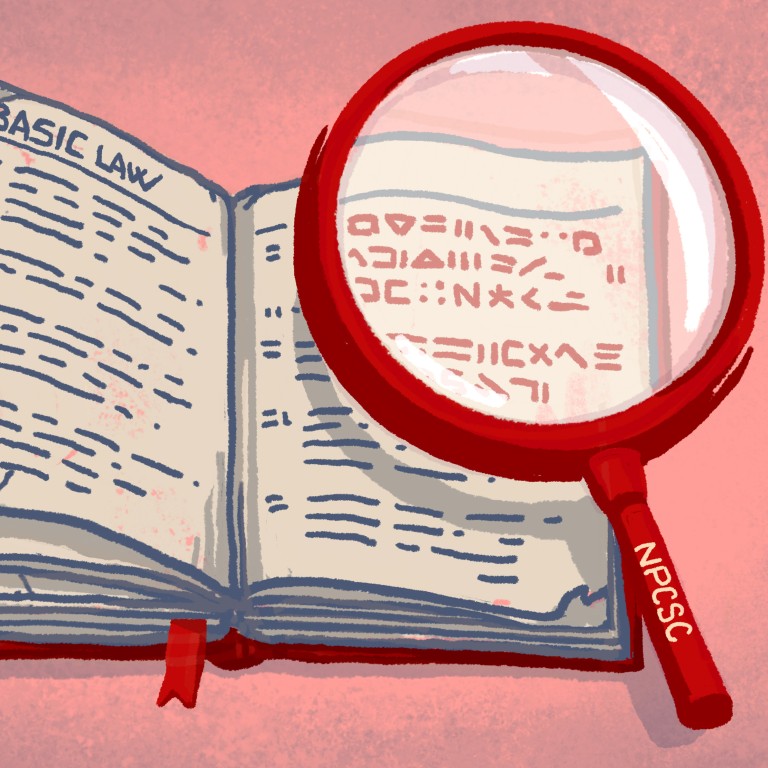
Unpacking Hong Kong’s laws, 25 years after handover: 5 rulings on Basic Law where Beijing, not the city’s courts, had final say in key cases
- NPC Standing Committee’s interpretations ‘averted migrant crisis, improved grasp of Basic Law’
- No interpretations since 2016, but top Beijing body has issued ‘decisions’ on critical issues in city
As part of the group drafting Hong Kong’s Basic Law in the late 1980s, veteran pro-Beijing politician Tam Yiu-chung knew even then some provisions of the mini-constitution, when taken together, could trigger controversy after the city returned to Chinese rule in 1997.
Article 2, for example, gave Hong Kong’s courts independent judicial power, including the final say on cases. However, Article 158 said China’s top legislative body, the National People’s Congress (NPC) Standing Committee, had ultimate power of interpretation over the Basic Law.
“This was based on China’s constitution, which empowered the standing committee to enact laws and interpret them,” Tam said.
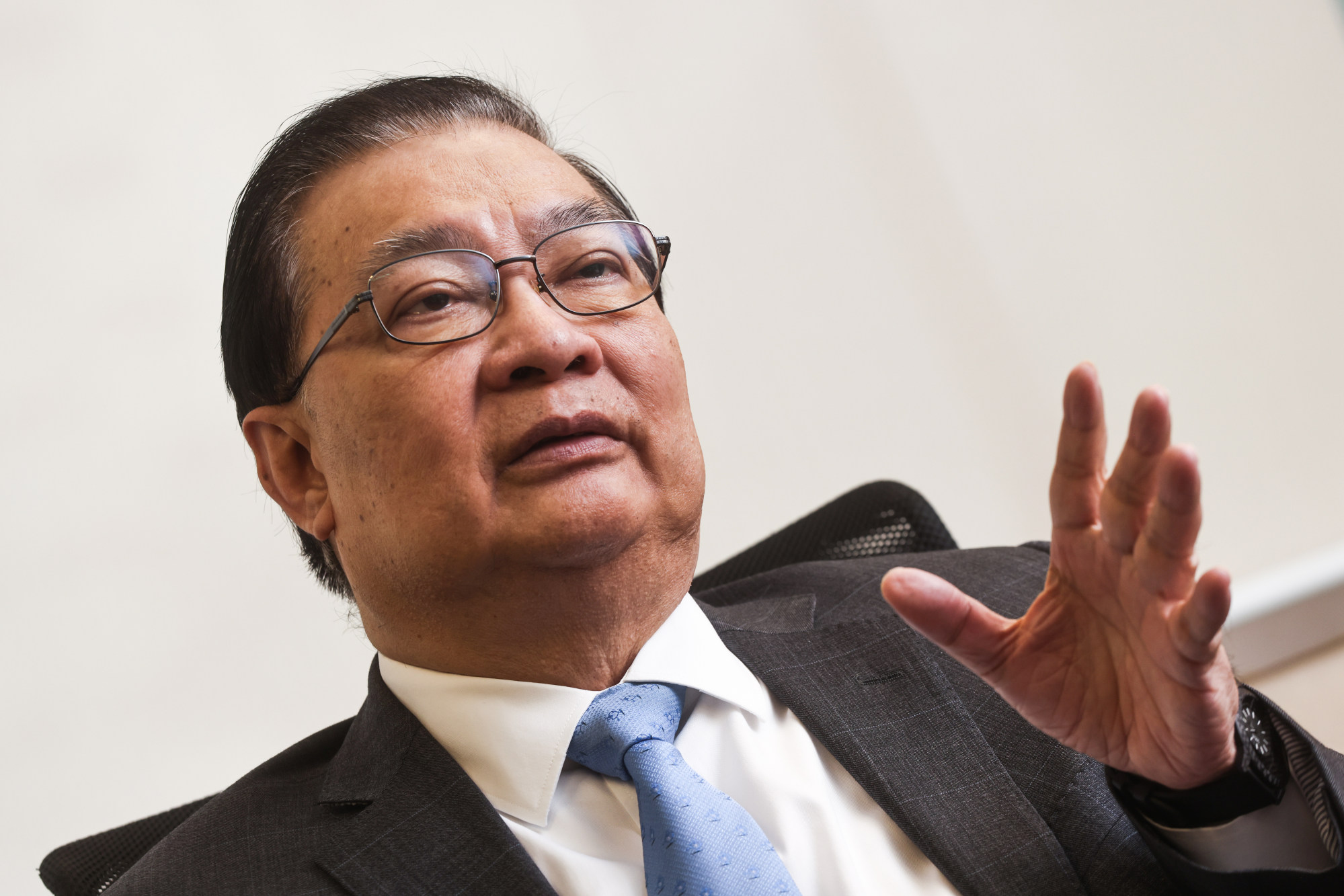
“At that time, some people who didn’t know the Chinese constitution jumped up and said that if the committee had the final say over the Basic Law, the Hong Kong courts’ power of final adjudication was not genuine.”
Those critics were speechless when Chinese legal experts explained the country’s constitutional order to them, he recalled.
“We knew that some situations or controversies could emerge after the handover. But we could not shut out Beijing’s power under the ‘one country, two systems’ principle of governance,” he said.
‘Hong Kong must uphold socialist system, stamp out delusions of street politics’
In the 25 years since the 1997 handover, Beijing’s interpretations of the Basic Law have cemented its role as a crucial actor in determining Hong Kong’s legal, political and constitutional order.
There have been five interpretations in total, beginning with one in 1999 and the last in 2016. Analysts said these moves helped to avert looming population and constitutional crises, clarified the relationship between Hong Kong and Beijing authorities, and deepened Hong Kong people’s understanding of the “one country, two systems” framework.
But analysts also bemoaned the lack of consultation, urging Beijing to allow Hong Kong people and experts more opportunities to express their views if it were to issue more Basic Law interpretations or key decisions in the future.
One key trend in recent years has been Beijing’s propensity to turn to decisions rather than interpretations, with scholars noting these were prompted by political events rather than legal conundrums.
First landmark case rejects top court’s ruling
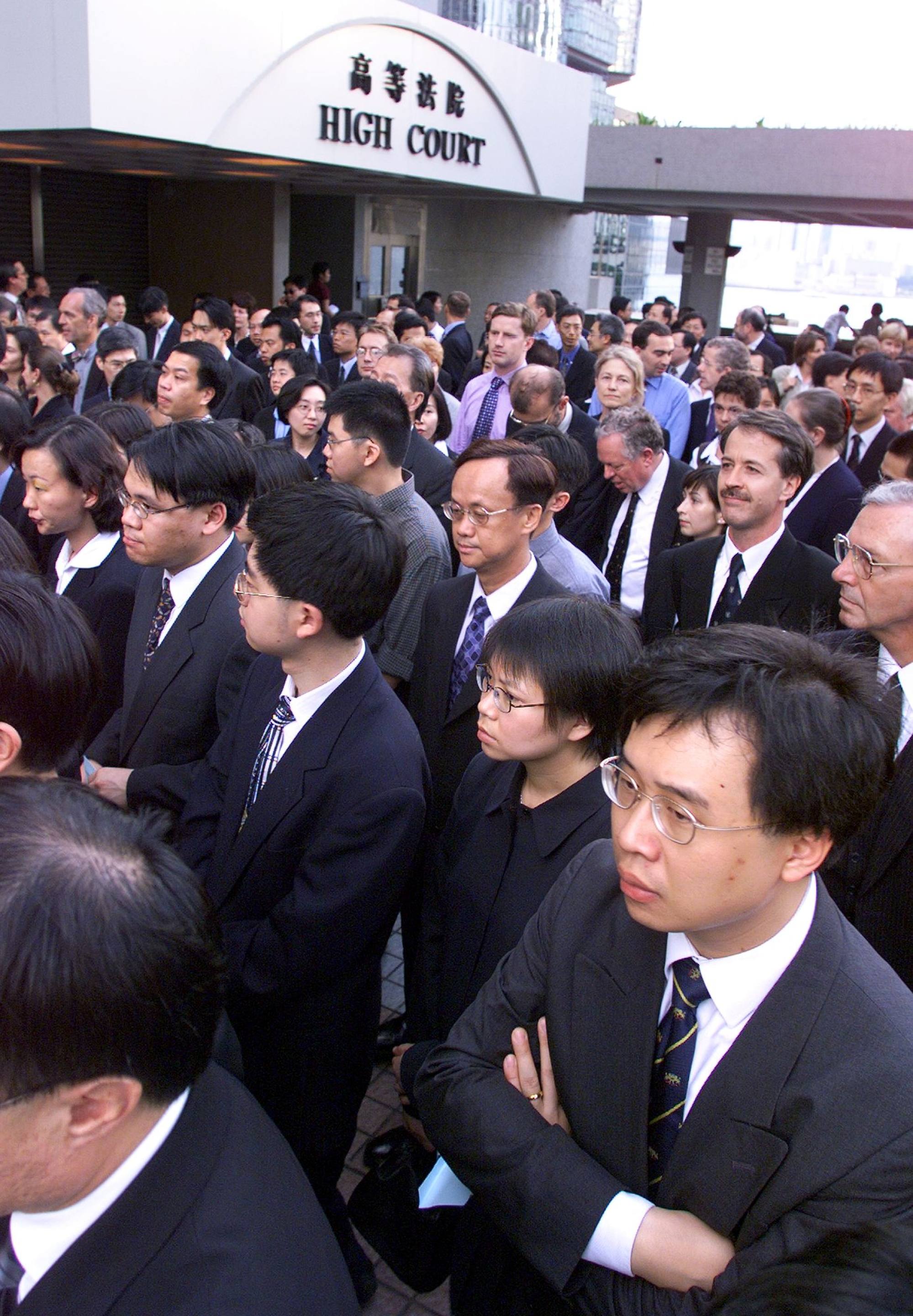
Just two years after the handover, a political storm erupted when the Hong Kong government asked the standing committee to interpret the Basic Law after losing two cases that went before the Court of Final Appeal.
In January 1999, the top court ruled against the government in judicial review cases over the rights of children born in mainland China to live in Hong Kong if either parent was a permanent resident or citizen of the city.
The cases centred on the constitutionality of Hong Kong’s Immigration Ordinance, and the court was asked if it mattered that a child was born before either parent became a permanent resident, and if the law applied to adult children born before either parent became a permanent resident.
The court was also asked if children claiming the right of abode were subject to the mainland one-way permit quota system for allowing those across the border to move to Hong Kong.
Beijing must respect Hong Kong courts’ interpretation of law
Lawyers for the plaintiffs argued that the ordinance contradicted the Basic Law’s Article 24, which gave the right of abode in Hong Kong to all children of permanent residents, without specifying whether to exclude children of new immigrants born before either parent obtained permanent residence.
The top court ruled that Article 24 included adult children of parents from the mainland if either parent had permanent residence. It also ruled that claimants of right of abode did not need one-way permits to move to Hong Kong.
Fearing the outcome could trigger an influx of mainlanders, the city’s then leader, Tung Chee-hwa, decided to ask Beijing for its interpretation of the Basic Law.
In June that year, the standing committee ruled that the right of abode applied only to children born after either parent obtained permanent residence. It also said those claiming right of abode were subject to the mainland quota system and needed a one-way permit to move to Hong Kong.
Tung Chee-hwa becomes first-time homeowner, buys US$20.6 million home
That became known as “the 1999 interpretation”.
Hong Kong’s opposition camp and legal sector criticised the government for turning to Beijing, saying local and mainland authorities had disrespected the city’s independent judiciary.
But those who supported the move said Beijing helped defuse a looming population problem for Hong Kong.
If the court’s ruling had stood, there would have been unbearable pressure on the city to accept a large number of mainlanders, said Elsie Leung Oi-sie, Hong Kong’s first postcolonial justice secretary from 1997 to 2005.
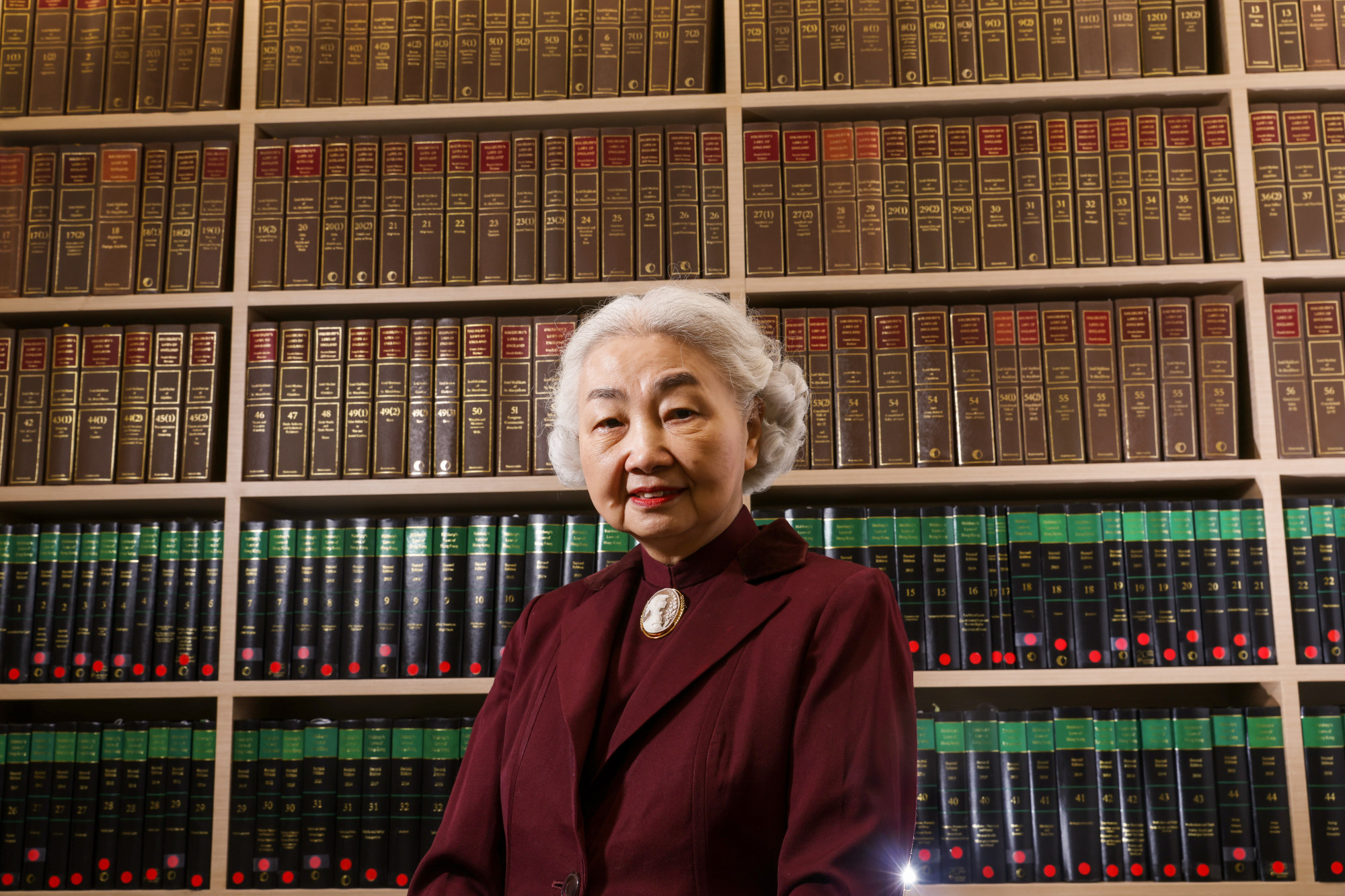
“If Hong Kong’s population increased by 25 per cent in 10 years, our healthcare, education and housing systems would have been unable to cope.”
Leung said the 1999 interpretation also resolved a potential constitutional crisis between the central government and Hong Kong.
In its January 1999 ruling against the government, the Court of Final Appeal asserted that if the NPC or its standing committee did something that contravened the Basic Law or was unlawful, it could declare it invalid.
That sparked an uproar among constitutional experts in Beijing. In February, the top court clarified that the NPC and its standing committee’s decisions were not to be challenged, especially when the power of the judiciary derived from a mini-constitution drawn up by the NPC. It would be the same in other common law jurisdictions under the principle of parliamentary supremacy.
Reinforcing the point, the standing committee said it only stepped in as Hong Kong’s top court did not seek help from Beijing and had interpreted Article 24 in a way that deviated from its legislative intent.
Ex-justice minister warns of risks to Hong Kong’s rule of law from outside
Leung said: “The interpretation was about clearly establishing the one country, two systems principle, as well as the relationship between the central and local governments.”
In the years that followed, Hong Kong’s opposition denounced most of the standing committee’s interpretations as interference by Beijing, but analysts argued that those rulings helped society gain a better grasp of the Basic Law and the constitutional order between the central and local governments.
“After the handover, our system needed to mature gradually. At first, our understanding of the Basic Law was not that clear, but with the interpretations, our knowledge of the Basic Law deepened,” Leung said.
She said she believed that after 25 years Hong Kong people had begun accepting that the standing committee’s interpretative power was part of the city’s constitutional framework.
‘Beijing only stepped in when it had to’
On the four other occasions when the standing committee gave its interpretation of the Basic Law, the city’s leader made the request once, it stepped in twice, and the Court of Final Appeal sought help once.
In 2005, Tung resigned midway through his second term and Donald Tsang Yam-kuen, then chief secretary, stepped up to succeed him.
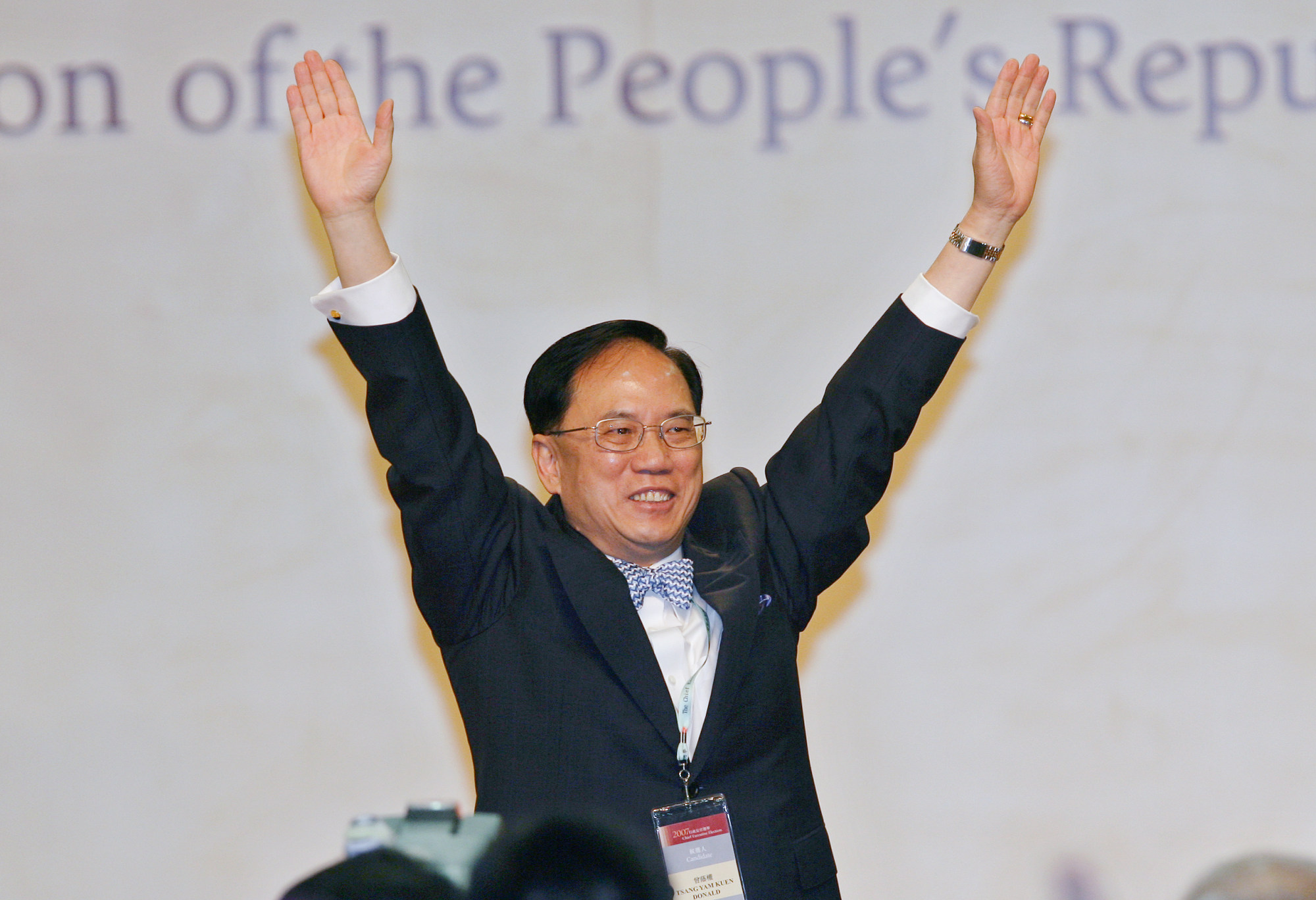
As acting leader, Tsang asked Beijing to clarify if he would serve the remainder of Tung’s term until 2007, or a new five-year stint until 2010.
Beijing ruled that the term would run out in 2007. Tsang was returned uncontested in a 2005 by-election and won a full five-year term in 2007, remaining in office until 2012.
The Court of Final Appeal asked Beijing for help in 2011, while dealing with the issue of state immunity in cases involving commercial deals.
The standing committee initiated two interpretations – in 2004, when it ruled on issues regarding political reform in the city, and in 2016, when it gave its decision on improper oath-taking by new pro-independence lawmakers that year.
US-based legal scholar Michael Davis, a former law professor at the University of Hong Kong, has been a staunch critic of Beijing’s interpretation of the Basic Law.
Donald Tsang discusses jail and why Hong Kong is still a ‘place of happiness’
He said that the 1999 and 2016 interpretations were the most contentious, as the former “created the circumstances for both the Hong Kong government and the NPCSC to simply override the considered judgment of the CFA”.
Simon Young Ngai-man, associate dean of research at HKU’s law faculty, also said that the 1999 interpretation remained “the most controversial intervention … because the NPCSC interpretation was directly in conflict with an interpretation of the HKCFA”.
“This demonstrated in stark terms that in the new HKSAR the judiciary does not have the final say over the interpretation of the Basic Law, Hong Kong’s constitution,” he said.
Like other analysts, Young said that the five interpretations were nonetheless necessary and dealt successfully with matters Beijing did not think Hong Kong could resolve on its own.
'Why wouldn’t you support the Communist Party?’ mainland legal expert asks Hong Kong
University of Hong Kong law professor Albert Chen Hung-yee, a member of the Basic Law Committee which advises the top legislative body, said that overall, it was rare for Beijing to interpret the mini-constitution.
He recalled that former Basic Law Committee chairman Qiao Xiaoyang once said Beijing would not step in arbitrarily to interpret the mini-constitution.
“Qiao said the standing committee would only do so when ‘forced’, or when there was no other choice to solve a problem,” Chen said.
He noted Hong Kong’s top court had requested the 2011 interpretation, and in 2016 Beijing would not have stepped in if not for the anti-China antics of new lawmakers taking their oaths at the Legislative Council.
Even though the interpretations were rare and necessary, Chen said, each was controversial because the central government’s view was different from that of those in Hong Kong who were against it.
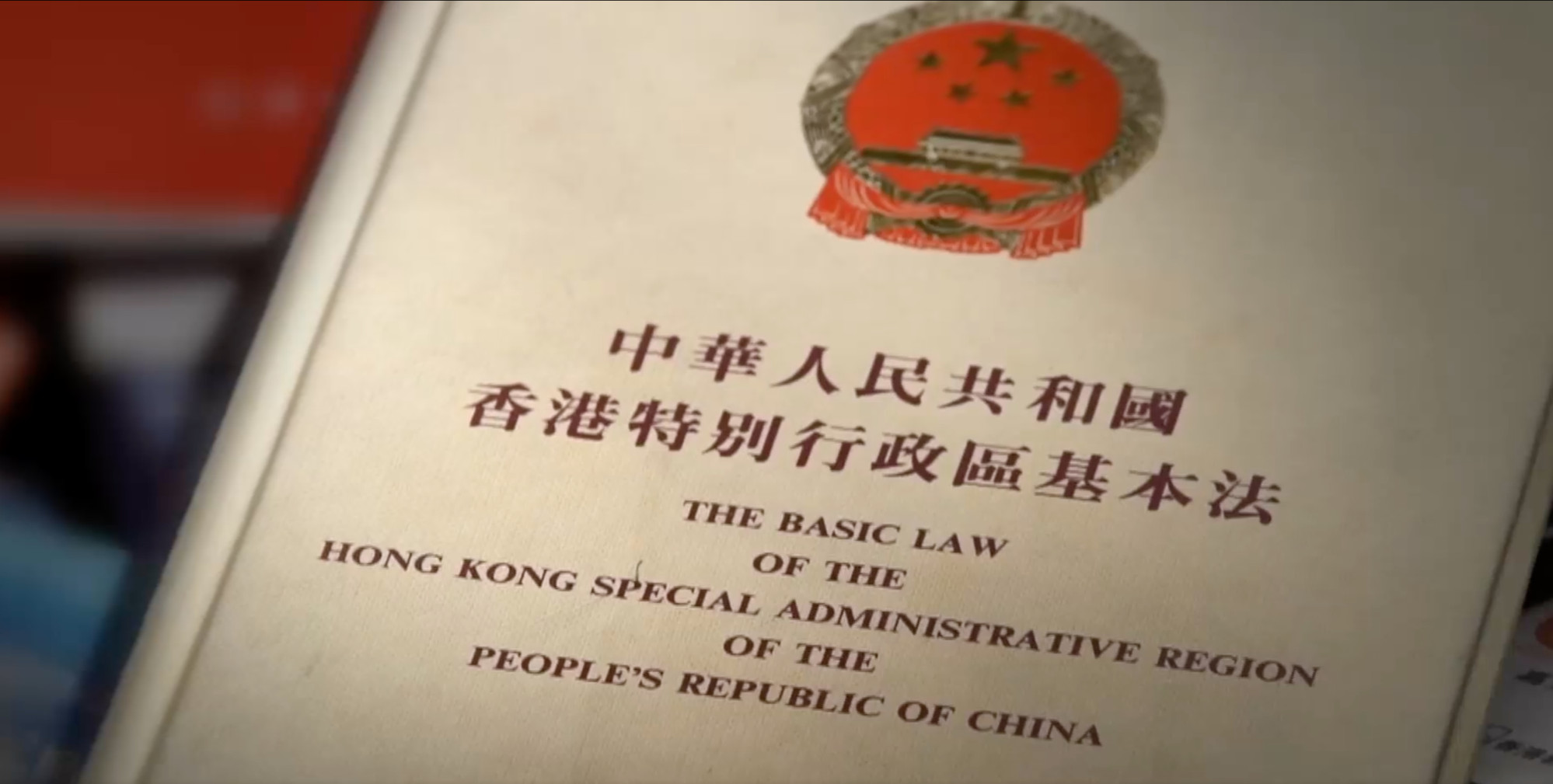
“Those who opposed it said Beijing should not interpret the Basic Law unless there was a request by the court, and once the Court of Final Appeal ruled, the standing committee should not add to the ruling,” he said.
He added the Court of Final Appeal had said there was no problem if the NPC initiated an interpretation, as that was provided for in the Basic Law.
“The top court recognised that interpretation did not originate from the common law system, but from the mainland legal system, and the central government could supplement the original texts when interpreting the Basic Law, as well as the mainland’s criminal and nationality laws,” he said.
Professor Lau Siu-kai, vice-president of the semi-official Chinese Association of Hong Kong and Macau Studies think tank, argued that the interpretations were contentious because the opposition camp and legal sector refused to accept the reality that the standing committee had the power to rule.
Hong Kong, 20 years after the landmark right of abode ruling
“They hoped the city’s judiciary could monopolise that power,” he said.
Lau felt the strong opposition to the first interpretation in 1999 made the Hong Kong and central governments hesitate. He pointed to a case in 2001, saying there should have been a request for an interpretation, but there was none.
Lau was referring to another right-of-abode case that turned up in the Hong Kong courts two years after the standing committee’s 1999 interpretation.
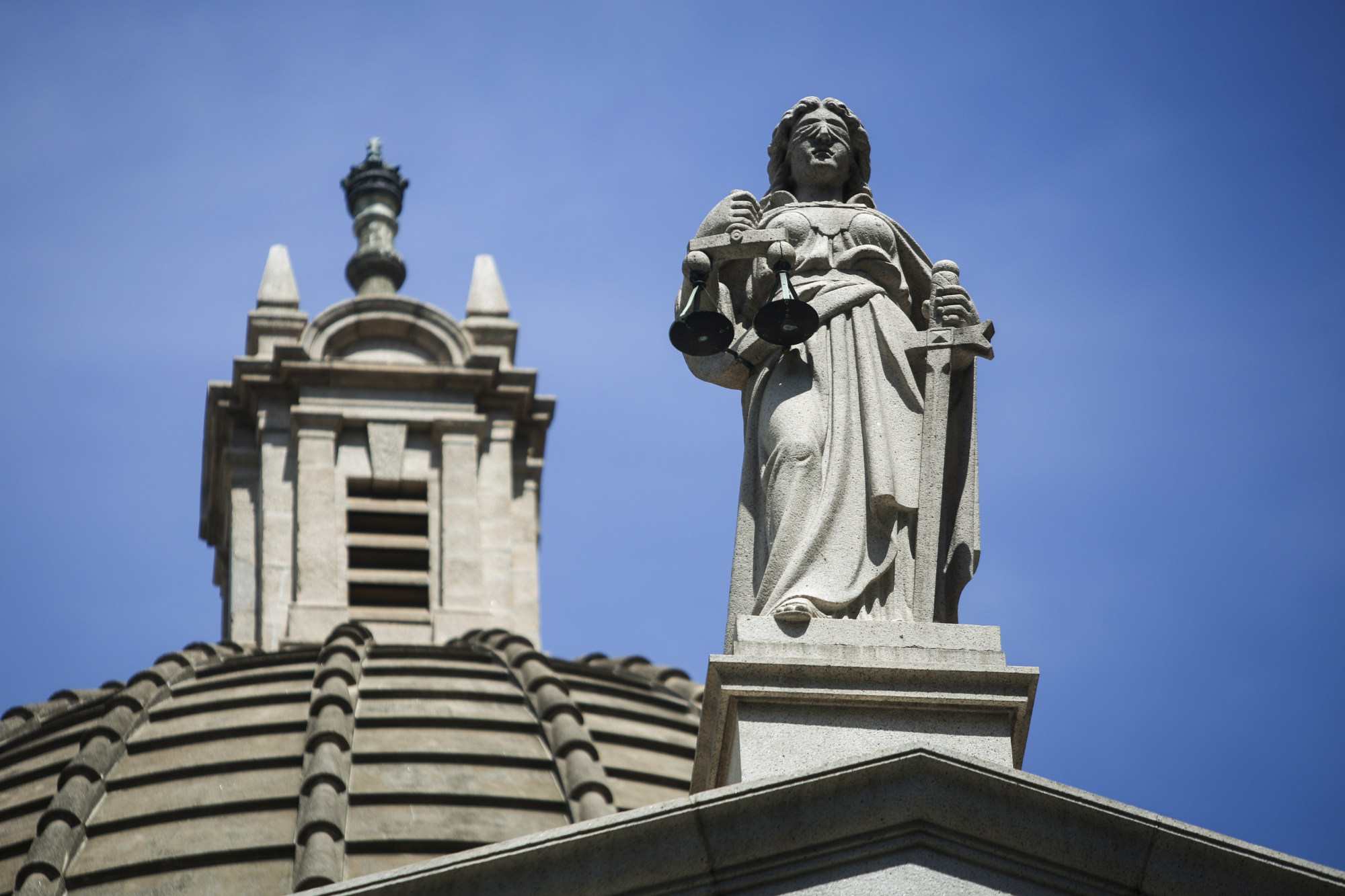
The city’s top court ruled that children born to mainland women in the city had the right of abode in Hong Kong. Neither the Hong Kong government nor the judiciary asked Beijing for an interpretation. The standing committee did not act apart from issuing a statement to say it disagreed with the court.
Elsie Leung explained that the authorities were focused on the bigger picture.
“The NPCSC has just interpreted the Basic Law in 1999 criticising the top court.. If the government applied for interpretation of the Basic Law in 2001 to criticise the top court again, it would deal a serious blow to the court’s authority. If people don’t have respect for the judiciary, the rule of law would also be undermined,” she said.
Top court to give landmark judgment on right of abode issues
Leung said the Security Bureau had also assessed that no action was needed because at that time, only a few hundred mainland women came to Hong Kong each year to give birth. A decade later, however, the number soared, sparking protests about overcrowded maternity wards. The government then took administrative measures to prevent that happening.
No interpretations since 2016, but more rulings
Former Bar Association chairman Ronny Tong Ka-wah, who spoke up against Tung’s decision to ask Beijing for a ruling in 1999, told the Post he was critical only because the request should have been made earlier, rather than have the central government step in at a later stage.
The last time the standing committee gave an interpretation was in 2016, after newly elected lawmakers Sixtus Baggio Leung Chung-hang and Yau Wai-ching inserted anti-China disrespectful words and deliberate mispronunciations while taking their Legco oaths.
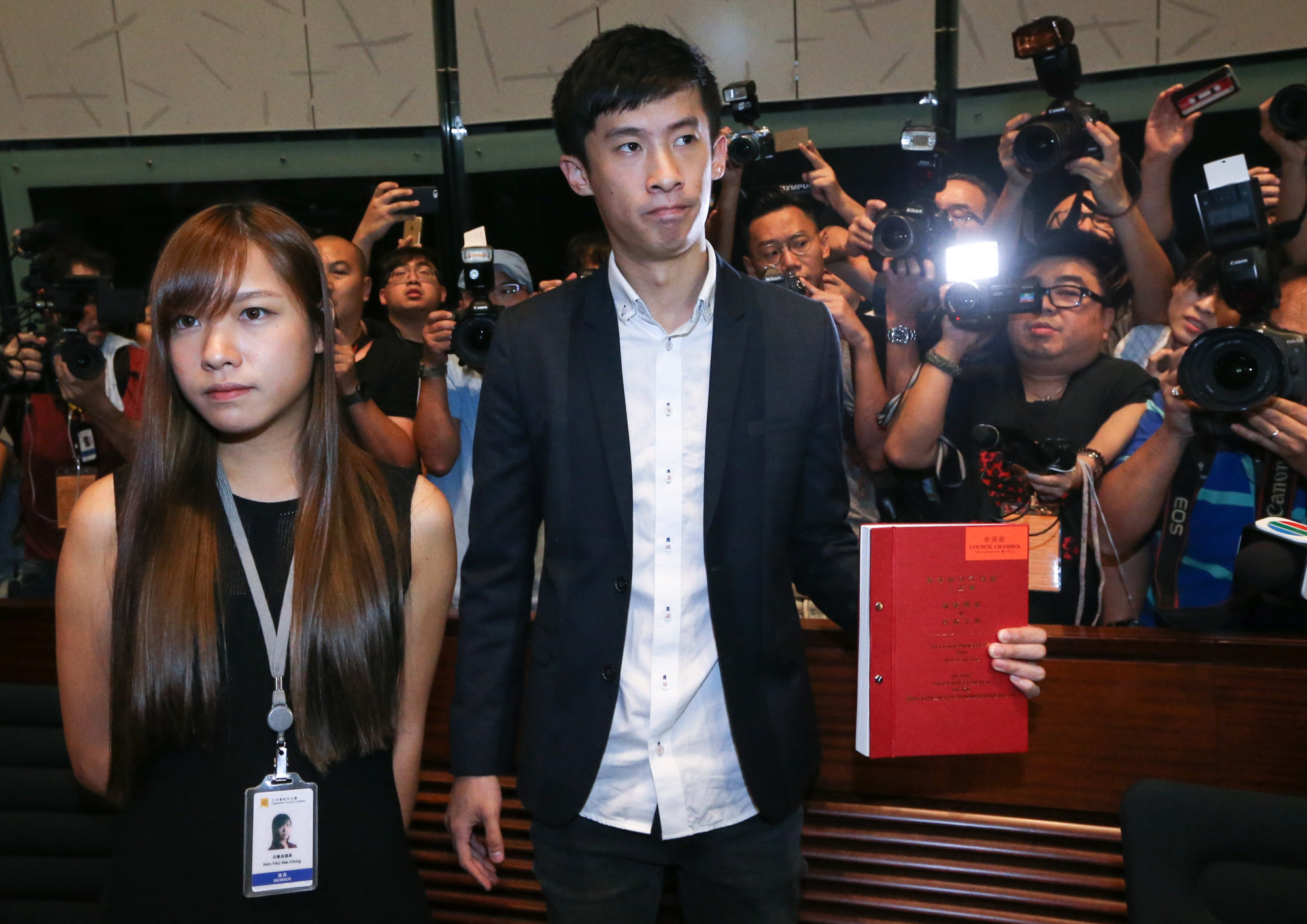
Previously, such antics might have been forgiven. But the standing committee ruled that new lawmakers who failed to take their oath sincerely or properly could be disqualified immediately.
Both lawmakers were ejected from the legislature. Leung fled to the US in 2020 and although Yau remained in Hong Kong, she has kept a low profile since.
Since then, the standing committee has not made any further interpretations of the Basic Law, although it has issued key rulings on Hong Kong affairs.
These decisions were not prompted by any legal conundrum or interpretation of the Basic Law but rather to solve political crises, analysts pointed out.
These include a decision in 2017 to co-locate immigration checkpoints at the West Kowloon high-speed railway terminus, after some in Hong Kong criticised the move to station mainland officials in the city.
Hong Kong’s 90 new lawmakers sworn in for first Legco of ‘patriots-only’ era
Since 2020, there have been four decisions. First, was the imposition of the national security law in Hong Kong in June 2020 after months of anti-government protests that had turned increasingly violent and amid suspicions of foreign support. The others were the extension of Legco’s term amid the Covid-19 pandemic and the disqualification of lawmakers deemed to have endangered national security. Another significant decision was the drastic overhaul of the electoral system to ensure only “patriots” were in charge.
Think tank chief Lau expected more to come, with the standing committee interpreting the Basic Law and laying down important rulings on Hong Kong affairs.
“It’s all written and decided by Beijing, as it plans to push forward its comprehensive jurisdiction over Hong Kong,” he said.
HKU legal scholar Simon Young suggested that if there were more decisions to come, especially on broad issues with a range of solutions to consider, it would be “advisable to have more channels for receiving meaningful and helpful views from the Hong Kong public”.
Pro-establishment camp makes nearly clean sweep in Hong Kong’s Legco poll
But others argued that Beijing had been restrained in invoking its powers over Hong Kong, and there was little to suggest that the interpretations or decisions concerning Hong Kong would become more frequent.
Chen, the law professor, said he thought it too far-fetched to suggest the standing committee would do more in future.
“The decisions in recent years were made to tackle special and urgent situations such as an election affected by the pandemic, or the need to enact a national security law … these will not be repeated in the foreseeable future,” he said.

